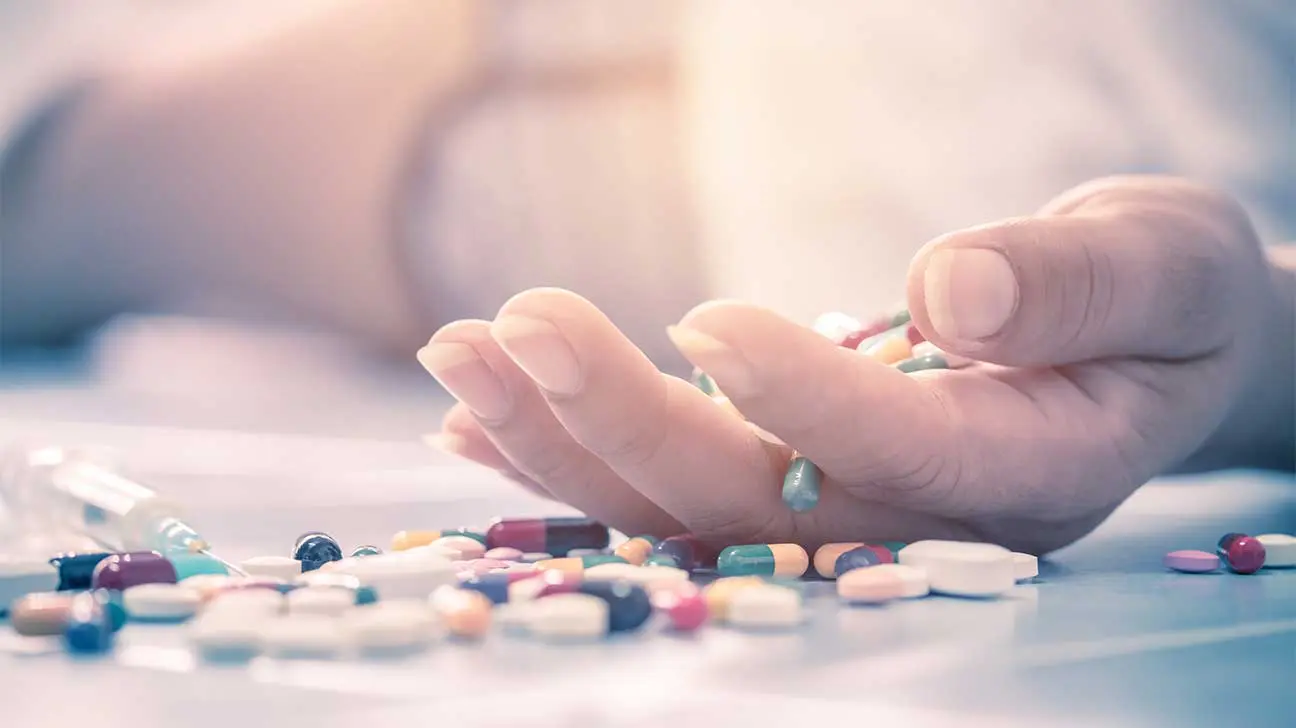
A drug overdose occurs when there is a buildup of toxic chemicals in the body. This can happen gradually over time, or during one incident. Prolonged abuse of illicit drugs can result in a number of health complications, including increased risk of a number of cancers, heart or lung disease, and risk of contracting infectious diseases.
With recent research in the past few decades, more safe and effective treatment methods are available for drug addiction than ever before.
Signs Of A Drug Overdose
It’s no secret that drug addiction can be bad for your health. But it can also rule your life, leading to constant urges to seek the drug of choice, change in behavior, and damaging effects to your health. Perhaps one of the most dangerous of these is risk of overdose.
Overdose can occur when your body has had too much of a drug, whether all at once or gradually over time. Like everything else we put in our bodies, drugs have to be processed, and the body can only process so much of any substance in a period of time. When the body has had too much, it may start to shut down, exhibiting physical signs to let your body know it can’t handle any more.
Signs of overdose can manifest in very different ways depending on the drug abused. In any case, overdose is a medical emergency, and should be treated as one, according to the National Council on Alcoholism and Drug Dependence. If you or someone you know begin experiencing symptoms of overdose, you should get medical help right away.
Are you or a loved one suffering from addiction?
Don't wait, get the best treatment options today!
Call Now: (888) 407-2072Signs Of A Depressant Overdose
Depressants are drugs that slow functions of the central nervous system. Examples: benzodiazepines (Klonopin, Xanax); sleep medications (Ambien, Lunesta); barbiturates (Mebaral).
Signs of a depressant overdose include:
- Shallow breathing/no breathing
- Blocked airway: snoring or gurgling sounds
- Blue lips or fingertips
- Arms and legs are heavy and unmoving
- Lack of response when stimulated
- Cannot be woke/loss of consciousness
Signs Of A Stimulant Overdose
Stimulants are drugs that work by increasing energy, levels of alertness and attention. Examples include prescription drugs such as Adderall and Ritalin or illicit drugs such as crystal meth and crack cocaine.
Signs of a stimulant overdose include:
- Agitation or paranoia
- Breathing troubles
- Chest pain
- Confusion/disorientation
- Extreme headache
- Hallucinations
- Increased body temperature
- Loss of consciousness
- Seizures
Sign Of An Opioid Overdose
Opioids are drugs that work to kill pain, both illicit and prescription-based. Examples include heroin and prescription painkillers (fentanyl, morphine, percocet)
Signs of an opioid overdose include:
- Pale, clammy-feeling face
- Body is limp
- Blue lips or fingertips
- Blocked airway (gurgling or vomiting)
- Unable to talk
- Loss of consciousness/can’t be roused
How To Help During An Overdose
If someone close to you is experiencing overdose, it may be hard to keep calm. But focusing on getting that person help is the best thing you can do. First, alert emergency services right away. If the person is having trouble breathing, or is vomiting, roll him or her to the side. This can help with breathing and help avoid choking.
If the person has shallow breathing or is no longer breathing, perform CPR right away. Above all, try to keep the person calm, and let them know you are there for them and aren’t leaving.
When To Seek Treatment For Drug Addiction
If you have never been addicted to drugs, you may not readily understand how anyone could fall victim to addiction. People who abuse drugs tend to continue not because they always want to, but because addiction changes you. It changes the brain, and how it responds to pleasure (the effects of the drug), making those affected crave more and more of the drug.
With time, prolonged drug abuse can lead to health complications. The severity of these complications depends on the person affected, duration of abuse, and drug of choice.
Some possible long-term effects of drug abuse, as reported by the National Institute on Drug Abuse, include:
- Development of heart or lung disease
- Increased risk of many types of cancer
- Stroke
- Development of different mental disorders: anxiety, depression, psychosis
- Developmental issues and long-term effects for unborn babies (with addicted mothers)
- Increased risk of contracting infectious diseases (like hepatitis C) or sexually transmitted diseases, like HIV/AIDS
In addition to health concerns, addiction to drugs can take a toll on your social life, personal relationships, and involvement in work, school, or personal obligations, and finances. When left untreated, addiction can run your life.
What Are Some Available Treatments For Drug Addiction?
Recent research into drug addiction has made available many effective methods of treatment. Recovery plans differ according to the person: which drug he or she has abused, for how long, and how much has been abused over time. Finding a treatment plan to suit your specific needs also means addressing other disorders, such as co-occurring mental health or substance use disorders.
Comprehensive treatment plans work to treat your mental and physical health, and are often available at inpatient rehab centers. When entering treatment, you’ll have to decide whether to complete healing in a facility or through an outpatient program. The benefits of inpatient care are unmatched. While at a rehab facility, you’ll get the care and support necessary to heal.
Get Help Today For An Addiction To Drugs And Alcohol
An overdose is a scary, unfortunate possibility of prolonged drug abuse and addiction. For those who are struggling, and want to get help, it’s available right here, right now. Contact us today at Turning Point to learn more about drug overdose risks, addiction, available treatments, and the rehab center difference.


